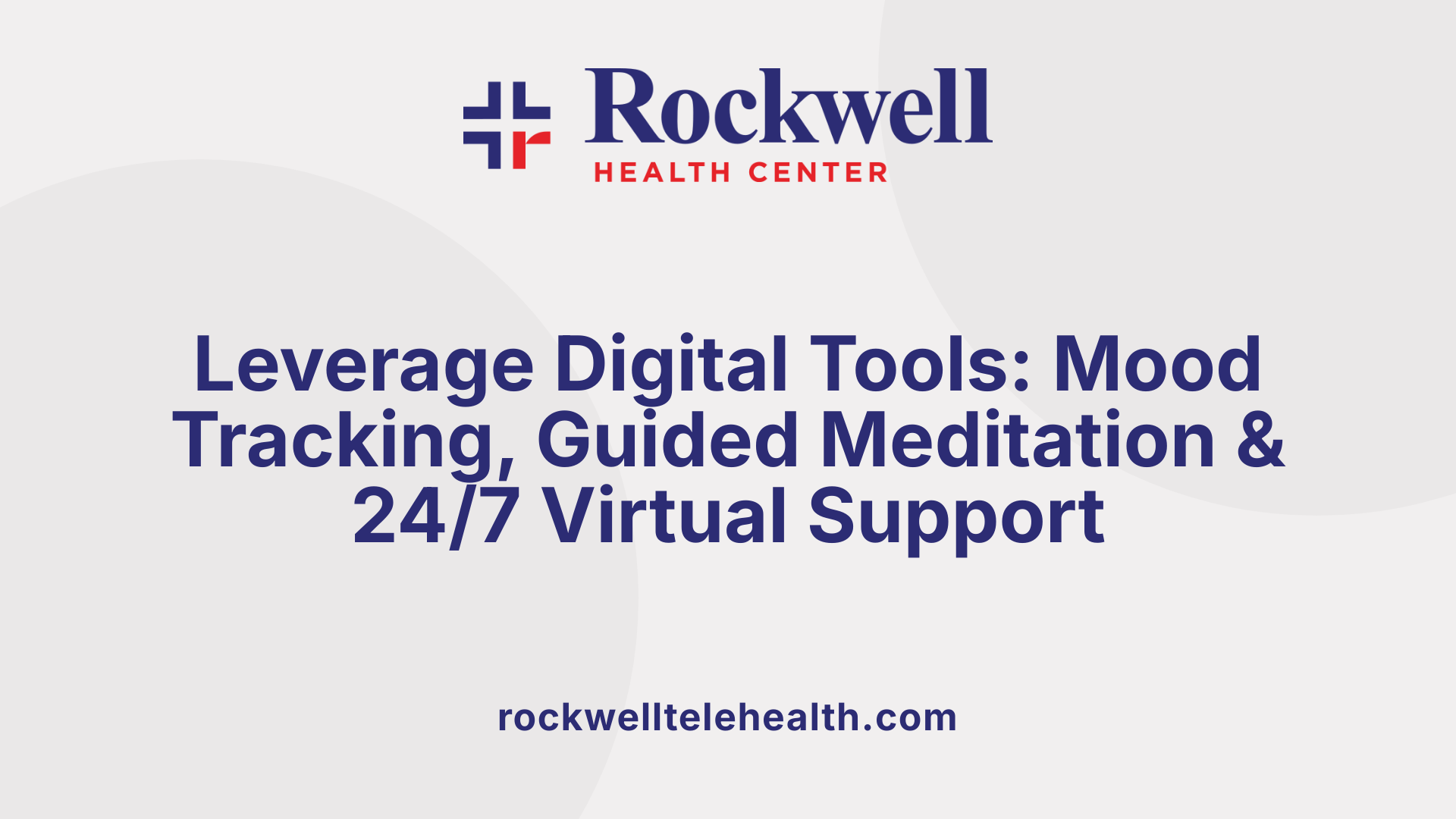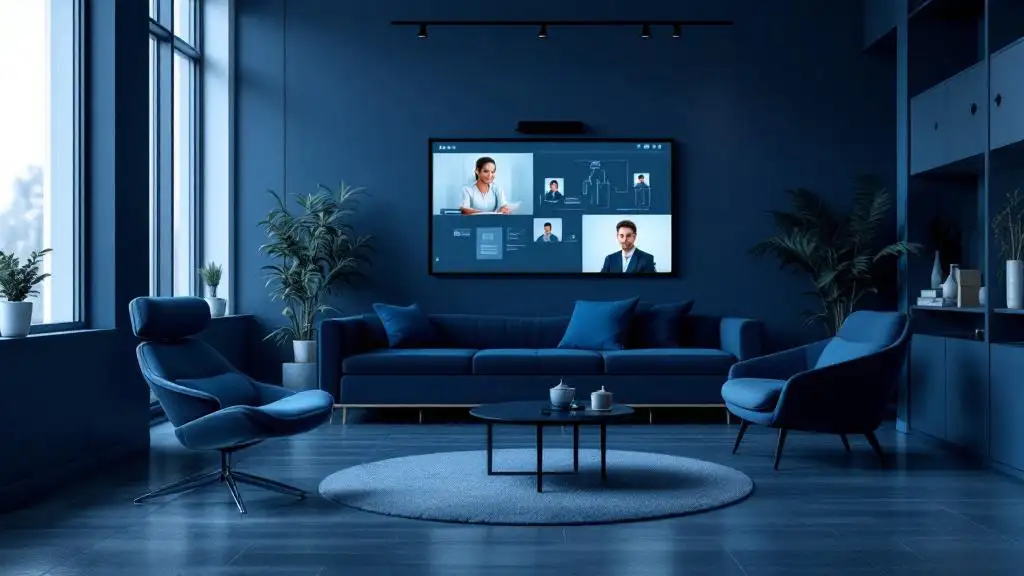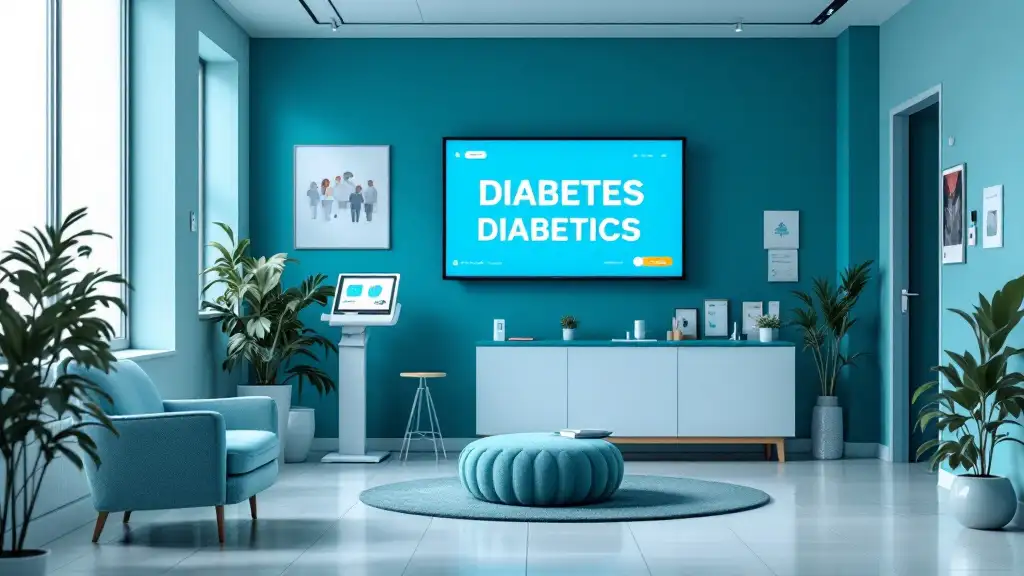Making mental health care a natural part of your routine
In today’s busy world, fitting mental health counseling into daily life is essential for maintaining overall well-being. With the growing accessibility of online platforms, personalized therapy options, and flexible scheduling, mental health support can be seamlessly incorporated into everyday routines. This article explores practical strategies, available treatment types, and innovative services designed to empower individuals to prioritize mental health without disrupting their busy schedules.
Prioritizing Immediate and Convenient Access to Support

Same-day and next-day appointments
Access to mental health support has become more immediate, with services now offering same-day and next-day appointments. This rapid access helps individuals address emerging concerns without long waits, which is essential when facing crisis moments or urgent issues. Both in-person and online options are available, making it easier for people to find care that fits their schedule.
In-person and online services
Flexibility is a hallmark of modern mental health support. Many platforms, like Mindful Care, provide in-person visits at scheduled times alongside online sessions that can be booked at short notice. Digital platforms such as BetterHelp and Talkspace further enhance accessibility by offering virtual therapy through text, audio, video, or live chat. These options are designed to seamlessly integrate into busy routines, removing common barriers such as travel time and scheduling conflicts.
MicroTherapy™ sessions
MicroTherapy™ is an innovative approach offering quick, 20-minute focused sessions aimed at helping individuals stay grounded amid busy days. These brief, targeted sessions are perfect for routine mental health maintenance. They focus on short-term issues like managing stress, improving sleep, or handling daily emotional challenges. Because they are concise, MicroTherapy™ fits effortlessly into daily routines, offering immediate relief and ongoing support.
What types of mental health treatments are suitable for routine use?
Routine mental health care benefits from evidence-based therapies such as cognitive-behavioral therapy (CBT), dialectical behavior therapy (DBT), and mindfulness practices. These therapies can be delivered in outpatient settings or through digital platforms, allowing for flexible and ongoing support. Lifestyle modifications, including regular physical activity, good sleep hygiene, and healthy eating, also play a crucial role.
Digital tools and mental health apps facilitate continuous self-care by providing guided meditations, mood tracking, and educational resources. These tools empower individuals to manage their mental health proactively, fitting therapy-like activities into daily routines.
How accessible and flexible are mental health services for daily integration?
The expansion of telehealth and online therapy services has made mental health care more accessible than ever. Features like customizable messaging, voice dictation, and flexible scheduling support integration into everyday life. People can seek help at any time, from any place, reducing barriers posed by transportation or clinic hours.
However, systemic issues such as affordability, provider shortages, and disparities in healthcare access continue to pose challenges. Marginalized communities might face difficulties in obtaining consistent support despite the availability of digital options.
In spite of these obstacles, the ongoing growth of teletherapy platforms, including those offering immediate appointment options and brief MicroTherapy™ sessions, offers promising avenues for integrating mental health support into daily routines seamlessly.
| Service Type | Delivery Mode | Focus | Suitable For | Accessibility Features |
|---|---|---|---|---|
| MicroTherapy™ | In-person/Online | Focused, quick sessions | Busy individuals needing short-term relief | 20-minute sessions, flexible scheduling |
| Telehealth therapy | Virtual (text, video, audio) | Ongoing support and therapy | Those seeking immediate, convenient care | 24/7 availability, customizable notifications |
| Digital self-care tools | Apps, web platforms | Self-awareness, mood tracking, techniques | Daily stress management | Guided meditations, mood logs, reminders |
As mental health services continue to evolve, their capacity for immediate, flexible, and daily integration becomes increasingly significant. Combining various modalities allows individuals to tailor their mental health routine to fit personal needs and lifestyles.
Embedding Mental Health Practices into Daily Routines

How can I fit mental health practices into my routines for better well-being?
A good starting point is to set small, manageable goals. For example, dedicating just five minutes a day to mindfulness exercises or practicing gratitude can make a meaningful difference. As you become more comfortable, gradually increase the time or complexity of these activities.
Incorporate engaging self-care activities that support physical, social, and emotional health. This might include regular walks, meaningful conversations with loved ones, or engaging hobbies. Creating consistent habits, such as going to bed and waking up at the same time every day or eating meals at regular intervals, provides stability that benefits mental health.
Using reminders—like phone alerts or visual cues around your space—and tracking your progress with journals or apps can reinforce these habits. Celebrate small victories to stay motivated.
Remember, patience and flexibility are essential. Developing lasting routines takes time, but prioritizing self-care regularly helps build resilience and boost overall well-being.
Incorporating Treatments into Daily Schedules

How can mental health treatments be incorporated into daily schedules?
Many individuals find that establishing consistent routines helps integrate mental health support seamlessly into their lives. Practices such as mindfulness exercises, journaling, or dedicated self-care sessions can become habitual with minimal effort over time. Starting with one or two activities encourages sustainable habits, which typically take around 66 days to become automatic.
Digital resources like guided meditations, mood-tracking apps, and online support communities offer flexible ways to maintain ongoing mental health care. These tools allow users to access support whenever needed, fitting into busy schedules without added stress.
Planning designated times during the day for therapy sessions or medication management ensures these treatments stay a priority. Whether it's a quick MicroTherapy™ session during lunch or a scheduled virtual appointment in the evening, consistent timing fosters discipline and reinforces the importance of self-care.
Efficiently incorporating mental health strategies like scheduled journaling or mindfulness breaks into daily routines promotes resilience and long-term well-being. Over time, these practices help individuals develop healthier coping skills that become second nature.
What types of mental health interventions are suitable for routine use?
Evidence-based psychotherapies, such as Cognitive Behavioral Therapy (CBT) and Dialectical Behavior Therapy (DBT), are especially suitable for daily or weekly routines through outpatient or online delivery platforms. These approaches are structured yet flexible, allowing individuals to practice techniques like thought restructuring and emotion regulation on their own.
Moreover, lifestyle habits such as regular exercise, balanced nutrition, and mindfulness practices contribute significantly to mental health maintenance. These routines can be integrated into daily schedules, with short, consistent activities like morning stretching or mindful breathing.
Support systems, including peer groups and community resources, provide continuous encouragement and accountability. Many platforms, like BetterHelp and Talkspace, facilitate ongoing therapy and coaching via messaging, video, or audio, making mental health treatment accessible anytime.
Digital platforms have revolutionized routine mental health management by offering apps and virtual therapy options that fit into everyday life. These tools empower individuals to take control of their mental wellness through regular engagement tailored to their unique needs.
| Intervention Type | Mode of Delivery | Suitable Routine Frequency | Additional Support |
|---|---|---|---|
| MicroTherapy™ | In-person / Online | As needed, quick sessions | Immediate grounding |
| CBT / DBT | Online / Outpatient | Weekly, biweekly | Self-guided exercises |
| Digital Apps (meditation, mood-tracking) | Mobile / Web | Daily | Continuous monitoring |
| Peer Support Groups | In-person / Virtual | Weekly or monthly meetings | Social reinforcement |
By combining these various approaches, individuals can establish a comprehensive, adaptable routine that promotes mental health and resilience in everyday life.
Leveraging Digital Platforms for Routine Support
How can online therapy and telehealth be seamlessly integrated into daily life?
Online therapy and telehealth services have become vital tools in making mental health support accessible and adaptable. They allow users to connect with licensed professionals from the comfort of their homes or on-the-go, fitting into busy schedules with ease.
One of the main ways to incorporate these services smoothly is through flexible scheduling. Many platforms offer evening and early morning sessions, helping individuals meet their mental health needs without disrupting work or personal commitments.
Managing appointments becomes simpler with digital scheduling apps that send reminders, reducing the chance of missed sessions. This consistency is crucial for ongoing progress and maintaining mental well-being.
Asynchronous communication methods—such as messaging, emails, or app-based chats—enable continuous support beyond live sessions. These tools offer quick, less disruptive ways to check-in, ask questions, or share updates whenever time permits.
To maintain a balanced routine, setting clear boundaries around therapy appointments is essential. Allocating dedicated times for therapy, creating a distraction-free environment, and buffering buffer times between sessions help prevent overlap with daily responsibilities.
By combining flexible scheduling, reminder systems, and non-real-time communication, online therapy can be seamlessly integrated into daily routines, making mental health care approachable and sustainable.
What educational resources are available for learning about mental health programs and how they support routine integration?
Understanding how mental health programs support daily routines is crucial for effective engagement. Numerous educational resources help individuals learn about these programs, empowering them to incorporate mental health care into their everyday lives.
Websites like MedlinePlus and SAMHSA offer comprehensive information about different mental health conditions and available treatments, including online therapy options. They serve as accessible guides for understanding how programs function and their benefits.
Wellness toolkits provided by organizations such as the NIH and CDC include practical exercises, self-assessment tools, and step-by-step guides for integrating self-care practices and therapy routines.
Mental health awareness training programs (MHAT) enhance understanding of mental health issues and effective strategies for self-management and help-seeking behaviors. They often include webinars, online courses, and community sessions.
Support hotlines and community-based groups also serve as valuable resources, providing immediate assistance, education, and peer support that can motivate ongoing participation in mental health routines.
These educational tools not only demystify mental health care but also offer practical advice for making treatment part of daily life, promoting resilience and well-being.
| Resource Type | Examples | Focus Areas |
|---|---|---|
| Official Websites | MedlinePlus, SAMHSA | Disease info, treatment options |
| Wellness Toolkits | NIH, CDC | Self-care, routine tips |
| Educational Programs | MHAT, online courses | Skill-building, awareness |
| Support Resources | Hotlines, community groups | Peer support, immediate help |
Additional Information
For those seeking further knowledge, searching terms like
Specialized Support within Daily Life Contexts
What should I consider when finding suitable mental health support within my daily life?
When choosing mental health support that fits into your routine, it’s important to identify your specific needs. Do you require therapy, medication management, or a combination of both? Understanding your needs helps narrow options.
Next, evaluate the qualifications and approaches of potential providers. Whether it's a licensed therapist, psychiatrist, or behavioral coach, their experience and treatment style should align with your goals.
Accessibility also matters. Consider whether services accept your insurance, are located conveniently, and offer privacy. Many platforms, like Mindful Care, provide quick, same- or next-day appointments, both in person and online, making access easier.
Building rapport and feeling comfortable with your provider enhances the effectiveness of treatment. Trust and open communication are vital.
Utilize trusted resources—such as referrals from primary care providers, community organizations, or reputable online directories—to find support options. Staying adaptable as your needs evolve ensures ongoing assistance.
In summary, thoughtful consideration of your needs, provider qualifications, and practical factors like insurance and privacy can help you find support that comfortably integrates into your daily life.
How accessible and flexible are mental health services for daily integration?
Advancements in telehealth and digital platforms have greatly increased the accessibility of mental health services. Platforms like BetterHelp, Talkspace, and Mindful Care offer virtual therapy, coaching, and self-care tools that you can access from home.
These services often feature flexible scheduling options, including messaging, video calls, and on-demand support, allowing users to fit mental health care into busy routines. For example, MicroTherapy™ sessions as short as 20 minutes help individuals feel grounded even on hectic days.
Many platforms support ongoing treatment by matching users with licensed therapists who can be contacted anytime, supporting continuous support without typical office visits.
However, barriers such as disparities in internet access, affordability issues, and a shortage of providers in certain regions remain challenges. These limitations can affect some communities disproportionately.
Despite these hurdles, continuous innovations aim to make mental health support more inclusive. Digital tools, apps, and online therapy programs are developing to fill gaps, making consistent, everyday integration increasingly achievable.
| Feature | Accessibility Level | Flexibility | Suitability Description |
|---|---|---|---|
| Telehealth platforms | High | High | Support from home, 24/7 access |
| Insurance coverage | Varies | Moderate | Affects affordability and choice |
| Short, focused sessions | Moderate | High | Fits busy schedules |
| In-person clinics | Moderate | Low | For those preferring face-to-face |
Overall, the evolving digital landscape offers promising options for integrating mental health support seamlessly into daily life.
Fostering a Culture of Routine Mental Well-being
How do self-reflection and ongoing practice contribute to mental health?
Self-reflection and continuous practice are essential tools for maintaining mental health. They help individuals become more aware of their thoughts, feelings, and behaviors, fostering a deeper understanding of what influences their emotional state.
Regular self-assessment encourages the identification of negative patterns and triggers, enabling proactive management of emotions and reactions. Incorporating habits like journaling, mindfulness exercises, or mood tracking into daily routines makes it easier to recognize signs of stress or distress early.
Ongoing practice, such as scheduled mindfulness sessions or weekly check-ins, helps solidify healthy coping strategies. These habits build resilience over time, making it easier to handle life's inevitable hurdles with greater ease.
By dedicating time to self-reflection and consistent self-care practices, individuals cultivate a mindset focused on self-awareness, which is vital for long-term mental well-being.
How can balancing personal and professional lives improve mental health?
Achieving a healthy balance between personal and professional responsibilities is crucial for reducing stress and preventing burnout. When individuals set boundaries around work hours, prioritize personal time, and engage in enjoyable activities, they foster a sense of control and satisfaction.
Strategies such as time management, scheduling dedicated relaxation periods, and learning to say no to excessive commitments help create sustainable routines. Establishing clear boundaries—like turning off work notifications after hours—protects personal time.
Creating routines that incorporate leisure, social connections, and self-care activities ensures that mental health remains a priority alongside professional obligations. This balance not only enhances resilience but also improves overall quality of life.
How does promoting resilience and self-awareness influence overall well-being?
Resilience—the ability to recover from adversity—is a cornerstone of mental health. Cultivating resilience involves developing coping skills, such as adaptive thinking, problem-solving, and emotional regulation.
Self-awareness complements resilience by helping individuals understand their emotional responses and triggers. This understanding allows for better management of stress and reduces the likelihood of overwhelming reactions.
Practices like mindfulness, meditation, or therapy help boost self-awareness and resilience. Engaging in ongoing reflection and skill-building encourages a growth mindset, emphasizing learning from challenges rather than being overwhelmed by them.
When individuals actively promote resilience and self-awareness, they foster mental toughness and emotional stability, leading to improved confidence and adaptability in facing life's complexities.
| Aspect | Importance | Practical Tips |
|---|---|---|
| Self-reflection | Enhances awareness, early identification of issues | Journaling, mood tracking, meditation |
| Balancing life | Prevents burnout, fosters satisfaction | Time management, setting boundaries, scheduled leisure |
| Resilience & Self-awareness | Builds emotional strength, adaptive capacity | Mindfulness, therapy, emotional regulation exercises |
Creating a routine that addresses these elements encourages a holistic approach to mental health, making support accessible and sustainable. Ultimately, integrating continuous self-care practices into daily life helps build a resilient mindset and fosters a culture where mental well-being is prioritized and normalized.
Building a Sustainable Mental Health Routine
Effectively integrating mental health counseling into daily routines requires a combination of practical strategies, accessible services, and supportive resources. Starting small with manageable habits, leveraging digital platforms, and maintaining consistent engagement can improve mental well-being without overwhelming daily schedules. Recognizing the importance of personalized care and seeking the right support can foster resilience and long-term mental health, turning well-being into an everyday practice rather than an occasional luxury.
References
- Mindful Care: Same-Day Therapy and Psychiatry
- Virtual and Online Therapy & Coaching for You
- Psychotherapy
- BetterHelp | Professional Therapy With A Licensed Therapist
- Talkspace - #1 Rated Online Therapy, 1 Million+ Users
- Psychotherapies - National Institute of Mental Health (NIMH)
- Mental Health Counseling
- Mental Health Counseling | MinuteClinic®
























































































.png)